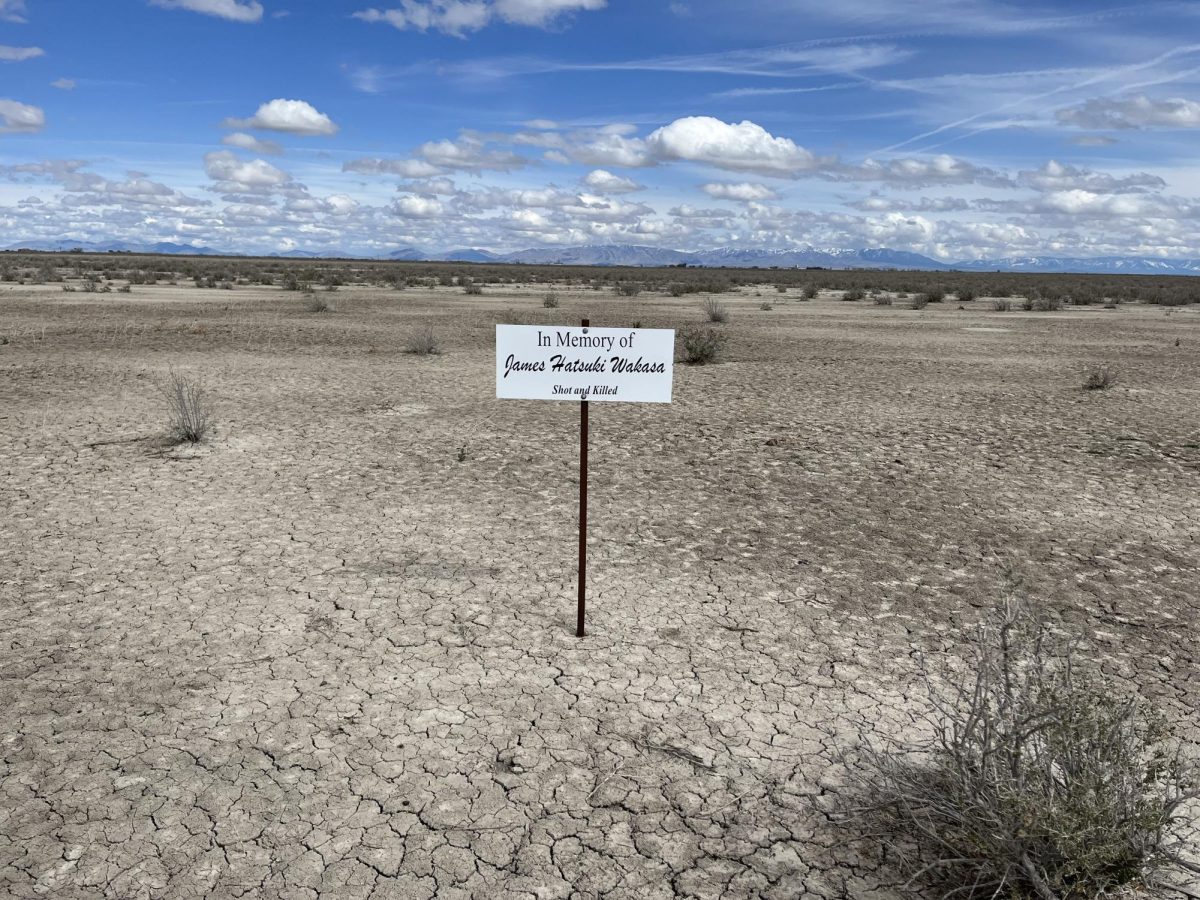College of Humanities Takes Steps to Address Racism and Diversify Curriculum
July 16, 2020
On June 8, 2020, Stuart K. Culver, the Dean of the College of Humanities, sent an email to students addressing the changes to the humanities as a result of current protests surrounding police brutality and also the COVID-19 pandemic.
In the letter, Culver writes about recent injustices and assures students “in the Fall we will be encouraging reasoned and respectful conversations in all our Humanities classes, exchanges that appreciate the range of cultural perspectives, recognize historical contexts and emphasize the capacity to listen and acknowledge other voices as well the ability to articulate clearly and forcefully one’s own understanding.”
The College of the Humanities encompasses the Departments of Communication, English, History, Linguistics, Philosophy, World Languages and Cultures and Writing and Rhetoric Studies. These disciplines, specifically history, philosophy, and English, Culver believes, have the facilities to incorporate issues of racial inequality and systemic discrimination into their curriculum.
“Those novels and stories and poems, think of the figures like Toni Morrison or the famous book by Richard Wright, ‘Native Son,’ those renderings of experience help people understand exactly what the experience of another person is. You could say they build up the skills of understanding empathetically,” Culver said.
The letter also addresses the role of the humanities in terms of creating a space to reflect on how core human values are being represented or not within the institutions that make up society.
“Specifically, the humanities help us see how history has shaped our present, show us worlds different from our own, give us tools to deliberate and write about complex topics, and inspire us to transform society,” said Associate Professor of Communication, Kimberley Mangun, in an email.
While Culver believes it is important for discussions about systemic racism to occur in humanities classes, he is not going to require any curriculum changes as he trusts humanities professors especially would want to incorporate these topics into their curriculum, if they have not already.
“I’m sending the letter out to the faculty, much like I sent a letter to the students that encourages them to think in the ways I’ve just described that is, are there ways in which the material you plan to cover can be directed to raise these issues more explicitly? But because they’re humanities professors, I’m perfectly confident that they will to some extent or another,” Culver said.
While Culver is not requiring any curriculum changes, some professors believe every professor in the humanities should deal with these topics in their classroom.
“We cannot understand human experience without inquiry into power, racism, racist policies, and racist ideas. Because racism is so fundamental to human experience both historically and contemporaneously, it should be addressed in all humanities courses,” said professor of communication, Danielle Endres, in an email.
Some professors are directly referencing the recent police brutality and Black Lives Matter movement and incorporating these topics into their lessons.
“I will be addressing the killings of George Floyd, Breonna Taylor, Ahmaud Arbery and many other Black people due to state violence and racism in both of my classes this Fall. I had planned to cover prison and criminal justice reform as one of the community issues,” Endres said.
“I am modifying that module to directly address the Black Lives Matter demands for police reform in Salt Lake City and Utah. We will be reading Black scholars writing about white Supremacy, anti-Black police violence, and the Black Lives Matter movement.”
Other professors are reflecting on the material they use in their classroom and evaluating whether it provides a wide range of perspectives or is limited in scope.
“So, rather than mandate curriculum or implement a ‘checklist approach,’ a better solution might be to identify opportunities for change,” Mangun said.
“For example, professors can start by reviewing what they teach. Are assigned readings written by a range of authors and not just white academics? Do the readings represent a variety of opinions or perspectives? Do students of color see themselves reflected in the syllabus, the course content, the discussions?”
Culver also believes professors who teach traditional topics like Shakespeare will be able to incorporate modern issues of racial inequality into their discussions. He expects more professors to choose “Othello” instead of “Hamlet” this year because it can be tied into modern-day racism.
“You can also think about the role that play has made as it’s been performed for hundreds of years, sometimes with a white actor in blackface, for example. So there are angles of vision you can take on what would be a more traditional work that can reflect the moment. But we also can highlight the courses that we actually have that are out there,” Culver said.
Along with the curriculum that already exists, Culver thinks the structure of humanities courses, which facilitates discussion to model civil discourse, will also be helpful in fostering these conversations about current issues.
“The ways in which we run our classes are very much based on discussion. And so surrounding that is a climate of respect and openness as you exchange ideas, listen to others and appreciate other perspectives. And the goal is not just increasing the verbal skills in the humanities, which is one thing that we try to do, but also in a way, modeling civil discourse, how we go about talking about hard topics,” Culver said.
In addition to teaching these topics that affect society, Endres believes professors need to be prepared to deal with racism in their own classrooms.
“Beyond teaching these topics, humanities professors also need to be able to deftly facilitate difficult conversations about racism, and intervene on racist microaggressions and abuses that happen in the classroom. Many white faculty need training on how to do this so that they can do more good than harm in attempting to teach about racism and the Black Lives Matter movement,” Endres said.
Similar to the community standards courses students are required to complete, humanities faculty are required to complete workshops on topics surrounding inclusion.
“As a white professor, I also need to be able to teach about how academia is a space that upholds whiteness and white supremacy. Moreover, because microaggressions happen in classrooms often, I think that any opportunity to learn more about how to intervene on them is essential for students and faculty,” Endres said.
While these issues will most likely be addressed in the classroom, Culver thinks it is also important to examine the institution the College of Humanities is a part of.
“We have to find ways to have the university student body reflect the changing demographic of Utah itself within the country and nation more broadly, but the state too, and we also need a faculty that’s equally diverse. That’s a priority,” Culver said.
Culver wants the College of Humanities to take an active approach to deal with issues of racism and inequity.
“It’s easy to come up with a statement that just says we don’t approve of racism. Okay, that’s a statement, but what are you going to do about it?” Culver said.








